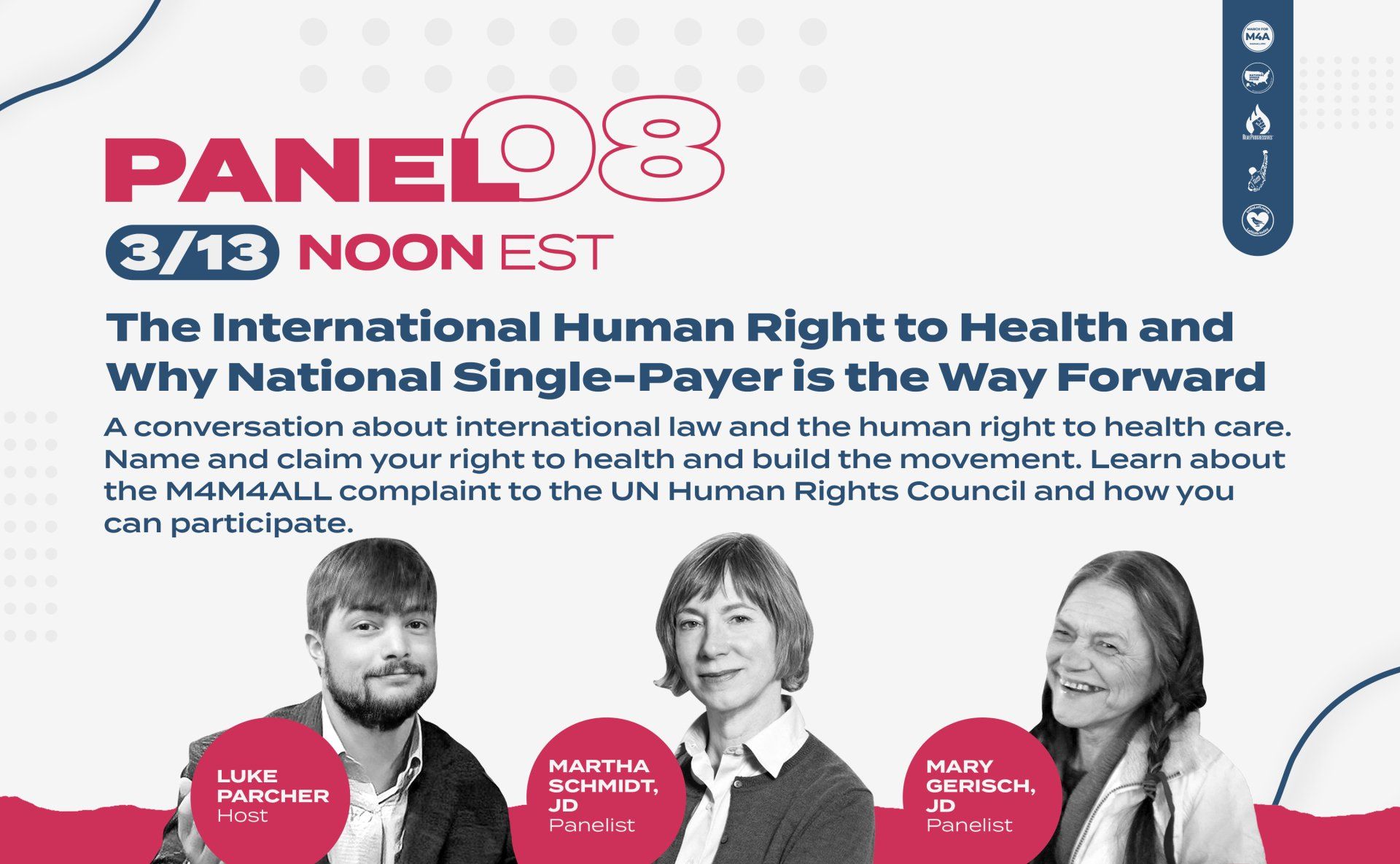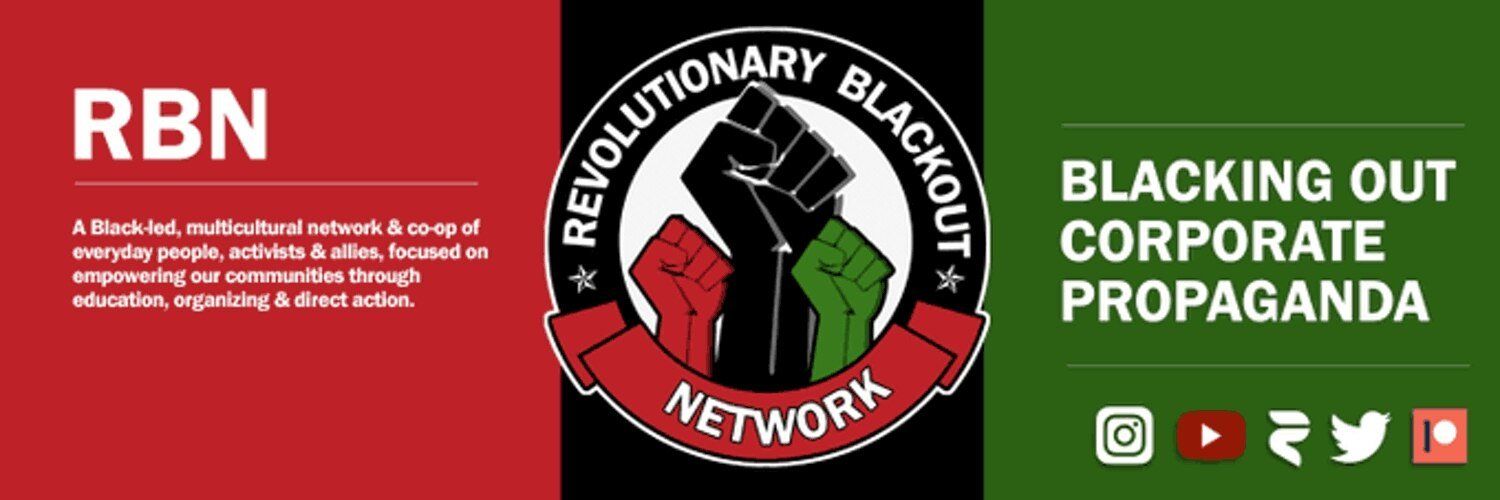
Healthcare is a Human Right
March for Medicare for All is joined by All Unions Committee for Single Payer Health Care; National Lawyers Guild, International Committee; National Single Payer; Physicians for a National Health Program; Poor People’s Campaign; Real Progressives; and Students for a National Health Program in filing a formal human rights complaint with the United Nations Human Rights Council (UNHRC) against the United States government for gross violations of the right to health care in this country.
WE NEED YOUR HELP!
If you are interested in sharing a story about the denial of the right to health care, please keep in mind this should be a personal story. Healthcare includes medical, dental, vision, hearing, mental health, reproductive health, pharmaceuticals, gender related health, medical and assistive devices, long-term/home/assistive care, alternative medicine, and more...
How to share your health care story:
- Record a Video
Length should be no more than three (3) minutes
- Voice Recording
Length should be no more than three (3) minutes
- Written Story
Please submit ½ page to a full page (100 to 250 words)
- Interview
Fill out the form below or send us an email to request one of
our interviewers to call you and document your story
Some possible issues to focus on which have impaired your health, the health of family members and people you know, or caused death to someone you knew, will be of special interest to the United Nations Human Rights Council (UNHRC).
These include:
- Lack of universal access to health care: no medical, dental, etc. professionals in the
community; closed local clinics/hospitals; no public transportation to doctor
- Unaffordability of health care: can’t get free services; cost barriers for you/family,
including premiums, co-pays and deductibles; medical debt and bankruptcy
- Discrimination: race, class, gender, national origin, low-income and other kinds;
failure to address group disparities by fixing systems that are discriminatory
- Denial of equity: unequal access to goods, facilities and services despite greater
individual needs, such as for more, special or expensive care, including drugs
- Lack of comprehensive care that is of the highest attainable quality
- Lack of good long-term care, especially for seniors and people with disabilities
- Unavailability of healthcare due to immigration status
- Denial of care and quality care including individuals who are incarcerated
- Lack of access to clean water, safe air and a healthy environment
All physical and mental health care problems you and others close to you have experienced are possible subjects. Stories about health care violations which are related to the COVID-19 pandemic and environmental justice are strongly encouraged. If you know someone with a story but they are unable to submit, please feel free to share it on their behalf.
Please share your story by clicking the button below.
FAQs
-
Why is this historic?
The US has only twice before been the subject of complaints to the UN involving gross violations of human rights, in 1946 by the National Negro Congress and in 1951 by the Civil Rights Congress, the “We Charge Genocide” petition. In this century, from 2006 to 2011, the United Nations Human Rights Council (UNHRC) has examined gross violations complaints from seven Asian and African countries, but it has never addressed social and economic rights violations of a wealthy country, like the US.
-
What are the human rights duties the US government owes us?
As a country subject to international human rights law, the US is obligated to respect, protect, and fulfill the right to health. The right to health care is part of the right to health. Our government’s duties regarding health care are both systemic and individual. It must provide a financing system that is adequate, sustainable and equitable. Each individual must have universal access: everyone covered, no cost barriers, comprehensive and equitable care. Care must also be equal/non-discriminatory, acceptable and dignified, and of the highest attainable quality. Health services and infrastructure must be available. The Government must guarantee the right to participate to individuals and groups in decisions about health care and have a transparent process, providing information about goods, services and facilities. Also required is accountability for system failures-- meaningful remedies when the right to health care is impaired or denied.
-
What will the complaint allege?
The complaint will name public authorities responsible and allege violations, such as denial of or barriers to universal access, discrimination/inequality of care, lack of the “highest attainable quality” of care. We will make the case against our privatized, for-profit system which necessarily results in gross violations. Individual accounts will be supplemented with social and medical research showing the magnitude of the violations.
-
What are gross violations?
Gross violations are those which can be described as serious, massive, flagrant and systemic. Gross violations are those which are planned for, repeated, and affect a number of victims and where government has failed to take appropriate measures relating to the violations.
-
Why file a complaint?
To broaden and deepen the movement against the commodified, for-profit system of the US, especially with the increasing privatization of the Veterans and Medicare systems. The complaint helps to reframe health care as a human right, subject to internationally-recognized and measurable principles which make up the right.
-
Why is it important to do this now?
The US has a long history, internationally, of weaponizing human rights, claiming exceptionalism, and evading its own duties to us. This is an accountability process. The UNHRC members have made previous suggestions to the US during the Periodic Reviews of the US on how to comply with international human right to health standards, such as expanding health care to all immigrants, access to abortion, and reducing maternal mortality of Black and Indigenous peoples. These recommendations have been ignored and are largely unknown, and unpublicized. US violations have gotten worse.
-
How is a complaint processed after it has been filed?
- After the complaint is filed, there is an initial screening to see if it is admissible.
- Then the complaint is sent to a five member Working Group on Communications (Communications). The members of Communications are from UNHRC countries representing different regions of the world and rotate to this position through the use of annual elections.
- Once Communications reviews the complaint, they will either ask for more information from us or send it to the US government for its response to the allegations. Following the US response, Communications members vote on sending the complaint to the Working Group on Situations (Situations), a 5-person group with different members.
- Situations writes a report and makes recommendations to the full Council. It can decide to discontinue the process, keep the complaint under review and gather more information, or send the complaint to the full Human Rights Council if there are gross violations.
- The Council has a confidential process to examine the report of the complaint. After reviewing the complaint, the UNHRC can 1) dismiss it, 2) keep it under review, while seeking more information from the US, 3) keep it under review and appoint an Independent Expert to monitor and report back, 4) end the confidentiality of the complaint and make the report public or 5) recommend that the Office of the High Commissioner for Human Rights (OHCHR) provide the US with technical cooperation, capacity building or advisory services.
-
Has the US ever recognized health care as a human right before?
The US has voted for and agreed to declarations and signed and ratified treaties, which provide health care as a human right. These are part of international law and include:
Universal Declaration of Human Rights, Article 25
1. Everyone has the right to a standard of living adequate for the health and well-being of himself and of his family, including food, clothing, housing and medical care and necessary social services, and the right to security in the event of unemployment, sickness, disability, widowhood, old age or other lack of livelihood in circumstances beyond his control.
(Adopted 10 December 1948, United Nations General Assembly, US lawyers helped draft, US voted yes)
International Covenant on Civil and Political Rights, Article 6
1. Every human being has the inherent right to life. This right shall be protected by law. No one shall be arbitrarily deprived of life.
(In effect since 1976; US ratified in 1986)
International Convention on the Elimination of All Forms of Racial Discrimination,
Article 5
In compliance with the fundamental obligations laid down in article 2 of this Convention, States Parties undertake to prohibit and to eliminate racial discrimination in all its forms and to guarantee the right of everyone, without distinction as to race, color, or national or ethnic origin, to equality before the law, notably in the enjoyment of…
(e) Economic, social, and cultural rights, in particular:
(iv) The right to public health, medical care, social security, and social services…
(In effect since 1969; US ratified in 1994)
International Covenant on Economic, Social and Cultural Rights, Article 12
1. The States Parties to the present Covenant recognize the right of everyone to the enjoyment of the highest attainable standard of physical and mental health.
2. The steps to be taken by the States Parties to the present Covenant to achieve the full realization of this right shall include those necessary for:
a) The provision for the reduction of the stillbirth-rate and of infant mortality and for the healthy development of the child;
b) The improvement of all aspects of environmental and industrial hygiene;
c) The prevention, treatment and control of epidemic, endemic, occupational and other diseases;
d) The creation of conditions which would assure to all medical service and medical attention in the event of sickness.
(In effect since 1976; US signed in 1977, submitted to U.S. Senate in 1978 for ratification)
MEDIA
Check out the following panels and interviews organizers have done to educate and bring awareness about this project.
"The International Human Right to Health and
Why National Single-Payer is the Way Forward"
Featuring lead attorneys for the complaint filing:
Mary Gerisch JD and Martha Schmidt JD,
with host Luke Parcher
Description: A conversation about international law and the human right to health care.
Name and claim your right to health and build the movement.
Learn about the M4M4ALL complaint to the UN Human Rights Council and how you can participate.
Streamed: March 13th, 2022 during
'Our Healthcare System in Crisis: National Single Payer Summit 2022'
Lead attorneys Mary Gerisch JD and Martha Schmidt JD are joined by organizers Savage Joy and Elizabeth Meyer to discuss the upcoming UN Human Rights Council complaint filing against the United States Government.
Hosted by the always gregarious James “JB” Fauntleroy on the Revolutionary Blackout Network (RBN)
Streamed: October 23rd, 2022




